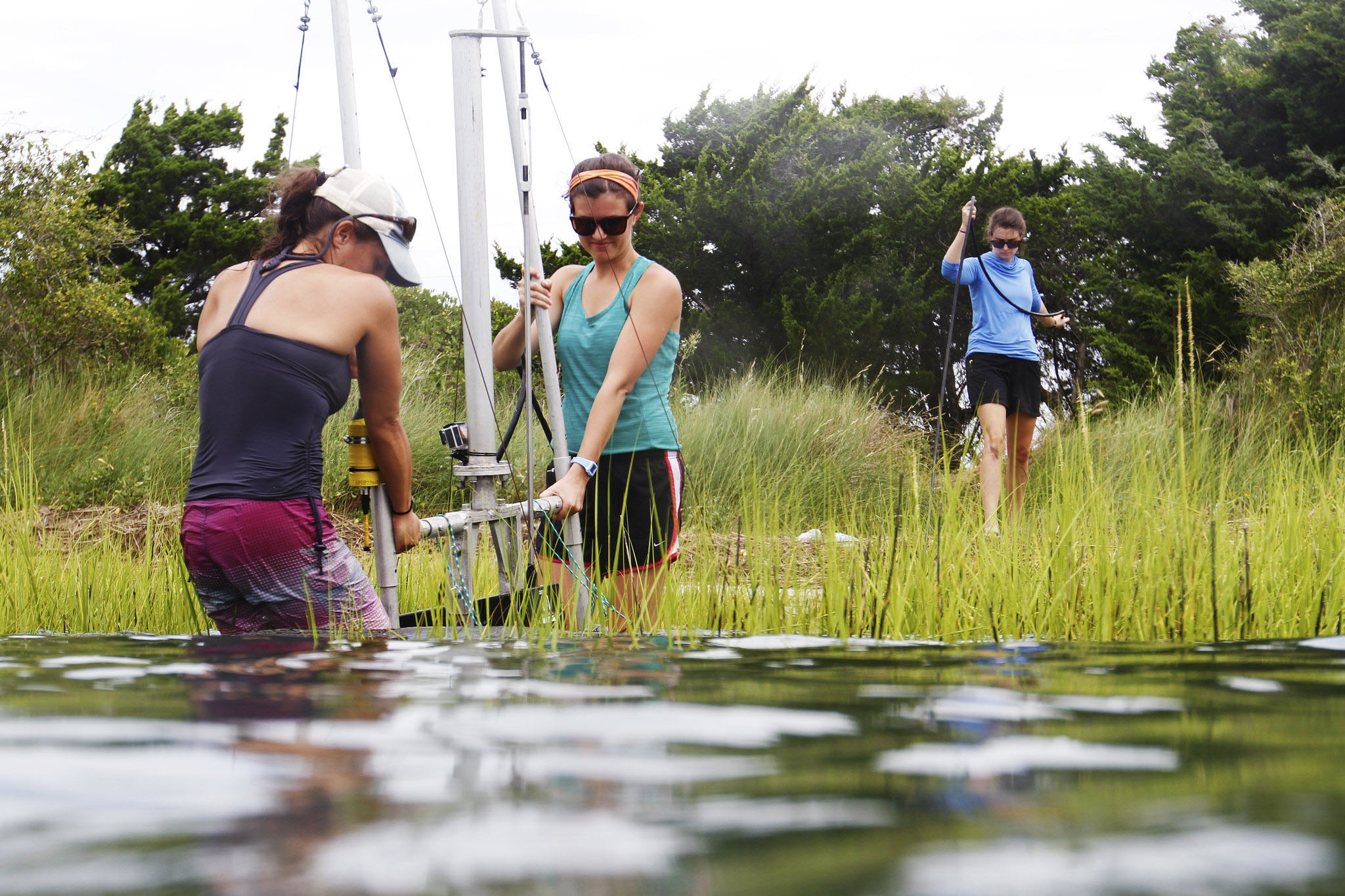
Merger of three units will strengthen interdisciplinary research, expand curricular offerings, and promote experiential learning opportunities for Carolina students.
The departments of geological sciences and marine sciences, together with the UNC Institute of Marine Sciences, will merge into a single academic unit within the College of Arts & Sciences on July 1, becoming the new department of earth, marine and environmental sciences.
“Bringing together the study of earth and ocean sciences takes advantage of the natural connections between the existing programs and allows us to build on our strengths,” said Terry Rhodes, dean of the College. “It will not only elevate the groundbreaking research we conduct at Carolina, it will provide new degree offerings for our students, as well as more opportunities to engage in hands-on research, including at the stellar Institute of Marine Sciences facility in Morehead City.”
“There’s a natural alignment between earth and marine sciences — these systems are interdependent and intricately interconnected,” said Eric Kirby, a professor in geological sciences who will chair the new department, in explaining the merger. “The training of the next generation of scholars needs to extend beyond the artificial boundaries of traditional disciplines.”
The fact that “environmental” is part of the name, along with “earth” and “marine,” is a nod to the fact that research conducted by faculty in both geological and marine sciences involves understanding the way the environment works and how human activity affects it.
The new department, which will go by the acronym EMES, will bring together more than 30 faculty, nearly 70 graduate students and numerous postdocs and research and technical staff at labs and facilities in Murray and Mitchell halls on campus and at the coastal marine lab at Morehead City.
The merger is being phased in over two to three years. Although the new department name takes effect on July 1 when faculty, students and staff are joined, both undergraduate and graduate students who are currently in degree programs in geological and marine sciences will have the option to continue in those programs until they graduate. In the next two years, EMES will introduce its new curriculum for its Bachelor of Science and Bachelor of Arts degrees and program minors, as well as start recruiting graduate students for admission to a single graduate program.
There will be different tracks in EMES so that students who want to focus solely on, say, geology, will be able to do so. But because the department of marine sciences does not currently offer a bachelor’s degree, only a minor, the new program will offer exciting new opportunities for undergraduates to study marine sciences on campus and at the coast.
UNC’s Institute of Marine Sciences is an off-campus research, education and service unit in Morehead City that has always worked closely with the marine sciences department.
“Bringing the institute in is really a remarkable opportunity; right now, a small group of undergraduate students go down [to Morehead City] each fall and spend a semester in residence on the coast, working closely with the researchers. It’s a unique experience, and we hope we’ll be able to do more of that,” said Kirby.
“The faculty who work at IMS perform research of major benefit to North Carolina — marine ecosystem health, storm hazards, coastal resilience,” he added. “There’s a really strong, deeply held mission of service to the state, and we want to build on that and for our students to experience that.”

The department of geological sciences traces its roots at Carolina to at least 1818 and was established as a department in 1893. It offers Bachelor of Arts and Bachelor of Science degrees as well as a graduate program. Marine sciences was formed as a graduate-level curriculum in 1969, offering master’s and doctoral degrees. It began offering an undergraduate minor in 1990 and became a department in 1997. The Institute of Marine Sciences, created in 1947 as the Institute of Fisheries Research and renamed in 1967, has been administratively housed under the Office of the Vice Chancellor for Research but will move into the College as part of the merger.
Formal planning for the merging of the three units began back in early 2020, but the COVID outbreak that began in March of that year and subsequently shut down the campus slowed the implementation timeline.
“We are so excited for the possibilities and synergies that combining these units opens up,” said Jaye Cable, senior associate dean for natural sciences and mathematics for the College and a professor in marine sciences. “The sum is truly more than its parts. This is a strategic alliance that will provide greater visibility to our earth and ocean research, teaching and service.”
More information about the new department can be found at its website, emes.unc.edu.
